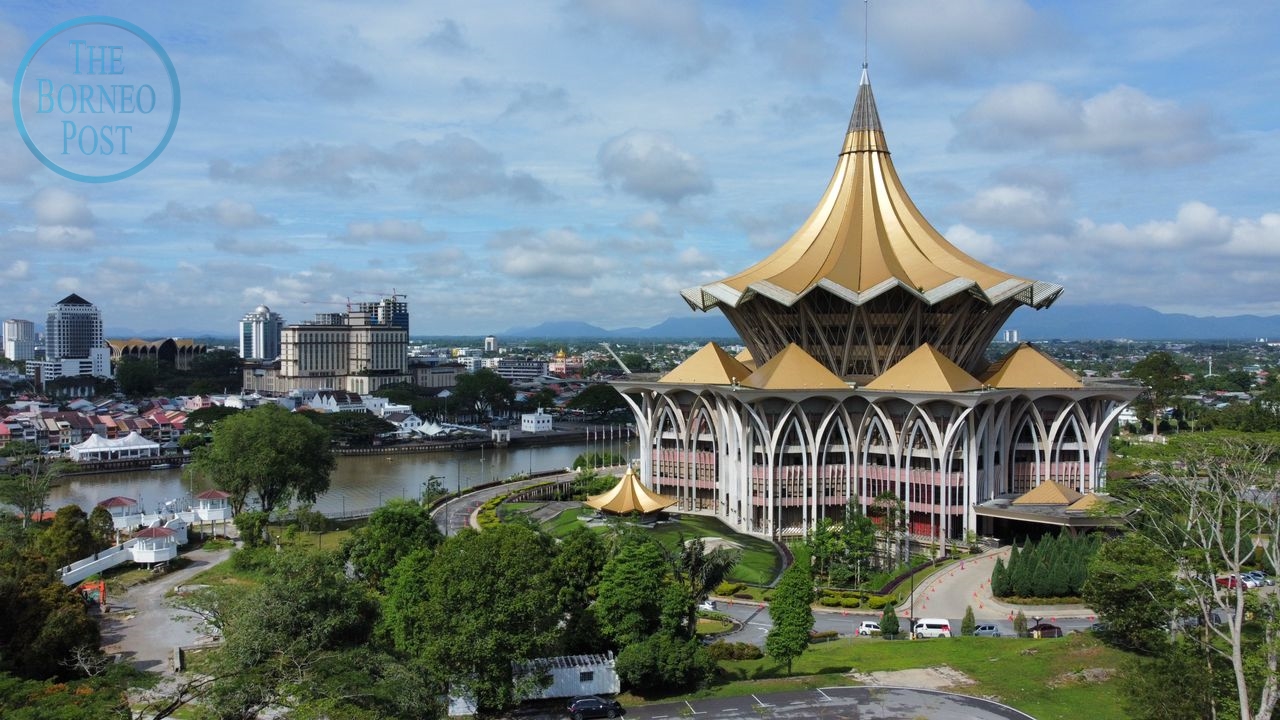ADVERTISE HERE

A view of the Sarawak State Legislative Assembly Complex. – Photo by Roystein Emmor
KUCHING (May 7): A central port authority known as the Sarawak Ports Authority will be established to manage, regulate, control and administer all ports in the state following the passing of the Sarawak Ports Authority Bill 2024 at the State Legislative Assembly (DUN) sitting here today.
The Bill, which was tabled and moved by Deputy Premier Datuk Amar Douglas Uggah Embas, who is also Minister of Infrastructure and Port Development, was passed with majority support from members of the august House.
A total of 21 honourable members debated on the Bill.
Uggah in his third reading of the Bill said the Sarawak Ports Authority will serve as a regulatory body and the operations of ports will be managed by a separated operator.
“For instance, Miri Port is currently managed by the Miri Port Authority, which serves as both the regulator and operator.
“Maybe that is why there were a lot of problems. We admit that our port development has its weaknesses and therefore we decided to do something about it by establishing a single port authority,” he said in response to Chong Chieng Jen (DAP-Padungan) who had earlier debated on the Bill and questioned how the consolidation of all port managements in Sarawak under a single authority could resolve existing operational issues and inefficiencies.
Earlier, Uggah when tabling the Bill, said the proposed new centralised port authority will replace all existing port authorities and that this model of centralisation could help Sarawak ports become more competitive and efficient, aligning with the broader economic goals of the regions.
He said the regulatory control over all ports in Sarawak will be exercised through a licensing regime provided by this Ordinance that would facilitate the corporatisation and eventual privatisation of the operations of the port and port undertakings to enable our ports to be operated as commercial entities embracing good corporate governance and financial discipline.
He pointed out the taking over of ports’ management and operation will be implemented in three phases namely the interim phase, corporatisation phase, and privatisation phase.
“Under the corporatisation phase, when a date for dissolution of an existing port authority has been appointed, the operational function of such existing port authority will be performed by a successor company.
“The successor company will be either wholly owned by the Authority or by the State Financial Secretary or it may be any other company incorporated under the Companies Act 2016 named in the Order made by the Sarawak State Cabinet (MMKN),” he said.
For the privatisation phase, he said the Bill will enable the Sarawak Port Authority, with MMKN’s approval, to privatise port undertakings and operation by licensing either a new entity which has private sector or investor involvement, or a successor company which has admitted new shareholders as investors in the successor company.
“The new entity will have to submit an application together with an operational and management plan as required under the new law,” he said.
Uggah said the functions of the Authority include planning, streamlining and coordinating the development, expansion and improvement of ports in Sarawak; promoting and facilitating the development of business of the port and its hinterland and connectivity with other ports and transportation hubs outside Sarawak; and to license all port operators and port undertakings.
Its role would also be to promote efficiency and reliability of services and facilities in accordance with recognised international standards and best practices; to act as an authority for any free zone established under and subject to section 3(2) of the Free Zones Act 1990; and to adopt low carbon solutions in the management and operation of port undertakings.
He said once the Bill comes into force, the Port Authorities Ordinance 1961 will be repealed.
“However, subsidiary legislation made under the repealed Ordinance would remain in force until revoked or replaced by new subsidiary legislations made under the new law.
“The new law shall have effect in any agreements or arrangements made or executed by the existing port authorities and any provisions in such agreements repugnant to the new law is void.
“Any prosecution, suit, etc pending or existing by or against the dissolved port authorities may be continued and enforced by or against the Authority or successor company,” he said.









 English (US) ·
English (US) ·